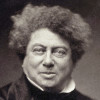“ When a young man goes to a fencing or a dancing school, he does not, indeed, always learn to fence or to dance very well; but he seldom fails of learning to fence or to dance. ”
Adam Smith, The Wealth of Nations (1776). copy citation
| Author | Adam Smith |
|---|---|
| Source | The Wealth of Nations |
| Topic | school learning |
| Date | 1776 |
| Language | English |
| Reference | An Inquiry into the Nature and Causes of the Wealth of Nations |
| Note | |
| Weblink | http://www.gutenberg.org/files/3300/3300-h/3300-h.htm |
Context
“Such is the generosity of the greater part of young men, that so far from being disposed to neglect or despise the instructions of their master, provided he shews some serious intention of being of use to them, they are generally inclined to pardon a great deal of incorrectness in the performance of his duty, and sometimes even to conceal from the public a good deal of gross negligence.
Those parts of education, it is to be observed, for the teaching of which there are no public institutions, are generally the best taught. When a young man goes to a fencing or a dancing school, he does not, indeed, always learn to fence or to dance very well; but he seldom fails of learning to fence or to dance. The good effects of the riding school are not commonly so evident. The expense of a riding school is so great, that in most places it is a public institution. The three most essential parts of literary education, to read, write, and account, it still continues to be more common to acquire in private than in public schools;”
source


